Not much of the wines of Cyprus are exported. That is a great pity for the wine lover. There are many excellent wines made here. Many with an astonishing depth, freshness and character. One of the most talented winemakers is Sophocles Vlassides, the winemaker and owner of the Vlassides winery. His approach to winemaking is unusual, very thoughtful, artistic and also scientific. He uses both “international” grape varieties and indigenous ones, maratheftico, xinisteri, yiannoudi… BKWine Magazine guest writer Matthew Stowell has named him “the Kandinski of Winemaking”. Read the story that explains why. (As a bonus you can also watch a video recording of a conversation with Vlassides and the BKWine Magazine editor from a few years back.)
“The artist is the hand that plays, touching one key or another, to cause vibrations in the soul.” —Kandinsky
As a wine writer on the island where the first oenologist, Dionysus, had a brief fling with Aphrodite, I am very often asked to name my favorite Cypriot winery. I usually say that this is an unanswerable question, akin to asking who among my children (I have four) is my favorite. In fact, I have several favorite wineries, each prized for a different reason. I might be partial to one because of the personality of the winemaker, another because of its beautiful setting and the poignant memories I retain of a particular visit, yet another because of a single exemplary wine among its labels, and at least six others because every bottle they produce is exceptional.
In addition, in Cyprus a wine or food writer must learn to be discreet and diplomatic. If I attempted to publish a top-ten wineries list, for example, I would be vilified and shunned by not all but many winemakers. Since it first became independent in 1960, Cyprus has been in all but name a socialist country (formerly politically aligned with Cuba and the Soviet Union), many of its leaders having benefitted from Soviet-subsidized education at universities and technological schools in Moscow. And there is still strong resistance to the adoption of free-market capitalism and the notion of open competition. Two years ago I was confronted by a winemaker who refused to carry my Guide to the Wines & Wineries of Cyprus in his shop because, as he put it, “You wrote too many nice things about my competitors”.
But I feel safe in reporting that in an informal though wide-ranging poll conducted over the past three years among both cognoscenti and neophytes at coffee shops, tavernas, restaurants and wine bars from one end of Cyprus to the other, the person most consistently named as the best Cypriot winemaker is Sophocles Vlassides. Even simple villagers devoted to beer and zivania (a grappa-like distillate best used as rubbing alcohol) who might indulge in wine only on special occasions—and, superstitiously, never in the summer!—are aware of Mr. Vlassides’ stellar reputation.
When I first met Mr. Vlassides, in 2006, a curious thing happened. In a moment of synesthesia, perhaps triggered by a physical resemblance and the similarity between the name Vlassides and Wassily, I immediately thought of the great Russian painter Kandinsky, a genius who took a scientific approach to create immortal art that was idiosyncratic in its subject matter but had the power to appeal to art lovers of every stripe. Both men, Kandinsky and Vlassides, are known for the intensity of their character, their heightened attention to detail—which approaches a kind of spiritualism—and their passion for experimentation.
But in some ways, Mr. Vlassides is typical of a majority of Cypriot wine producers in that winemaking was a family tradition, starting with his grandparents. His mother was from a Koilani (Kee-lani) family that grew and vinified grapes, making Mr. Vlassides a third generation winemaker, as are most winery owners in Cyprus. His father, from Rizokarpaso (now under Turkish occupation), was a chemical engineer who tended vineyards owned by his wife’s family and subsequently worked for KEO and ETKO, two of the oldest and largest wine concerns on the island.
After graduating from high school in Limassol, Mr. Vlassides followed his father’s lead and went off to study chemical engineering at the Imperial College of London. When he returned to Cyprus, two years later, he worked as an assistant winemaker at ETKO. Having decided that winemaking was to be his destiny, he then applied for and won a Fulbright Scholarship that took him to the University of California at Davis and its esteemed Masters program in Oenology and Viticulture. This was a science-based course of studies comprising the nurturing and control of grapes—chemically, botanically and biologically—from planting vines to harvesting, pressing, maturation and bottling of the finished product.
In an effort to better understand how Mr. Vlassides had earned his top-gun position and how it had elevated him so dramatically above the 60 other winemakers in Cyprus, I recently visited him at his new, very modern, Bauhaus inspired facility (another connection to Kandinsky, who taught at the Bauhaus before the Nazis shut it down). The following is part of my interview with him.
I imagine that growing up in Koilani, you developed a passion for winemaking at a young age.
“No. I grew up in Limassol, but every year, especially at harvest time, my father would take me up to Koilani to help in the vineyards. You have to understand that for hundreds of years almost everyone in Koilani has been involved in grape growing or winemaking. The grapes brought a very good price, and the government subsidized 25 per cent of it. Even up to the 1980s, Koilani produced 180 million kilos of wine grapes per annum. But now most of the young people have left for the cities and Koilani’s grape production today is down to 16 million kilos. I can’t say I was always happy about being dragged up to Koilani to work in those vineyards, but I did manage to gain a great deal of hands-on knowledge from the experience.”
“But it wasn’t until I was in California that I really felt a passion for wine and the making of it. Most Cypriot winemakers choose to go to France for their studies, while I decided to go against the flow and I chose to do my postgraduate degree at UC Davis in the United States. I deliberately chose to go to the USA, since I wanted to get to know all the unconventional, modern and alternative vinification processes and discover something different.“
At U.C. Davis, did you specialize in any particular aspect of winemaking?
“Yes, in Artificial Intelligence.“
Are you joking?
“No. I used AI and historical data to predict results of the viticulture and oenology employed beforehand—what you can expect the year (the vintage) to yield—which involved a lot of small scale fermentation. The university had its own vineyards and I focused on the Sauvignon Blanc vineyards, gathering data, analyzing it, inputting the chemical analysis of the grape juice against the chemical analysis of the finished wine, plus detailed sensory analysis.”
What do you mean by “detailed sensory analysis”?
“I was very impressed by something one of my professors, Ann Noble, had developed: the Wine Aroma Wheel, which provides a scientific breakdown and guide to the olfactory elements (aromas) of wine. What happens when you insert your nose deep into the wine glass has tremendous influence on how your senses perceive the essential qualities of the wine and with practice one can accurately assess and appreciate all that went into the making of that wine.”
“Doctor Noble developed the Wine Aroma Wheel to create a shared language for analyzing and discussing the aromas and flavors of wine. It was all about the sensory science of wine, and her wheel has provided a lexicon for sommeliers and wine writers. There are 11 aroma categories (such as Fruity, Spicy, Floral) and 83 descriptors (such as Berry, Black Pepper, Violet). There are also separate aroma wheels for each of 20 different grape varieties. As a winemaker, I wanted to explore which are the most desirable aromas and tastes from the wheel and learn how to best naturally develop and enhance those qualities in the winemaking process.”
Your background in chemistry must have proved a big advantage for you at U.C. Davis.
“Chemical engineering isn’t really about chemistry. It’s concerned with designing the processes used to produce something—anything really—with detailed analysis, and a meticulous working out of all the parts that make up that process. It’s about building systems from start to finish. Someone trained in chemical engineering could work in any number of fields. In fact, a majority of my fellow graduates went into the world of finance.”
“There is only one road to follow, that of analysis of the basic elements in order to arrive ultimately at an adequate graphic expression”. —Kandinsky
But Mr. Vlassides – thank the gods – returned to Cyprus and immediately began to make wine in a stone-built converted garage in the middle of labyrinthine Koilani. As I recall, when I visited him there in 2006, there were about six or seven small stainless steel tanks and a few oak barrels, but beyond that barely enough room to swing a cat. He had started vinifying Cabernet Sauvignon and Shiraz grapes from his family’s four hectares of vineyards and was selling out his entire production (15,000-20,000 litres) every year, mostly to fine restaurants. Over the next 14 years, by acquiring another 11 hectares of land, planting more vines and borrowing equipment from other wineries, he reached an output of 50,000 bottles, and in 2012 he was able to build a state-of-the-art facility that has enabled a threefold increase in production. In addition to the original Cabernet Sauvignon and Shiraz, he is also producing nine other labels using Merlot, Chardonnay, Sauvignon Blanc, Mourvedre (called Mataro in Cyprus), Grenache, the Greek Agiorgitiko and Assyrtiko, and the indigenous Cypriot Xinisteri, Yiannoudi and Promara.
What is it, do you think, that makes your wine so much more sophisticated than most others in Cyprus?
“As any good winemaker will tell you, first is the terroir. You have to know which grapes will do best in a particular vineyard. For example, I learned early from my father that the Koilani area, in general, is the perfect terroir for Shiraz, and the Shiraz we make is our most popular wine. It is 35% of our production.”
“We give a lot of emphasis to the vineyard; 80% of the quality in wine is because of the quality of the grapes. You need patience to watch a particular area to know which grape varieties do better there. After many years, for example, I found that a north-facing, high altitude vineyard is best for Sauvignon Blanc, but it still takes a great deal of handiwork to train the grapes properly in order to create a high-quality wine.”
“The artist is not a ‘Sunday child’ for whom everything immediately succeeds. He does not have the right to live without duty. The task that is assigned to him is painful, it is a heavy cross for him to bear.” —Kandinsky
I noticed that you use the trellis system for most of your vines, when the majority of Cypriot winemakers use the open bush system.
“The trellis system provides a more even degree of sunlight to all the grapes, so there is a more even rate of maturity. It also makes for easier cultivation and harvesting.”
Mr. Vlassides also likes to experiment a bit. There are other winemakers in Cyprus known for their penchant to experiment with various grape varieties or styles, most notably Theodoros Fikardos, Marcos Zambartas and Costas Tsiakkas, but Mr. Vlassides is doing it at a slower, more patient pace. For him, it takes ten years of alterations in method and fine adjustments before he is ready to release one of his ‘experimental’ wines.
Why does it take so long?
“You know, when you’ve reached a point when you are producing very good wine, the next step is to create interesting wines, with more complexity, more intensity in the taste and with the special capability of ageing well. Right now I am experimenting with Assyrtiko, Agiorgitiko, Xinisteri from a different terroir in Omodos (a nearby village also famous for wine), Promara and a late-harvest Sauvignon Blanc.”
What’s new for the future? Do you plan on growing any other grapes from different parts of the world, say a Nebbiolo or Sangiovese, a Viognier or Tempranillo?
“No, I’ll be concentrating more on our Cypriot Yiannoudi and Xinisteri, blending the latter with Assyrtiko. And we’ll try to expand our distribution by exporting a little here and there to various countries.”
Mr. Vlassides is a seriously analytical winemaker, but he is also a consummate artist in a field of endeavor that in Cyprus can offer aesthetic pleasure to any wine lover on a budget. His line of eight-euro, everyday drinking wines is called Grifos, and it includes a red from Agiorgitiko and Mataro, a white from Xinisteri and Sauvignon Blanc, and a rosé from Shiraz and Grenache.
Why did you use the name Grifos?
“The name of the wine was inspired by the ancient era and geometry, two concepts intrinsically connected with winemaking. The three eternal conundrums or brain-teasers of the Ancient Greek mathematicians— doubling the cube, trisecting the angle, squaring the circle—are displayed on the labels of these three wines, enticing us to discover them. (Again, dear reader, we are in Kandinsky territory.) We use advanced technology with good healthy grapes from a vineyard that is not overproduced. There is a constant high quality and faults are not happening because we exert intense control.”
Mr. Vlassides is also one of the first in Cyprus to make a luxury-class sparkling wine, Eddial, from Chardonnay and Sauvignon Blanc, using the traditional method (with second fermentation in bottle) and ageing it in the bottle on its lees for at least 30 months before disgorgement. All who have tasted it agree that it’s a fantastic wine.
Cyprus can boast of many accomplished winemakers, from the oenologists at the smallest boutique wineries to the those working for the Big Four (KEO, ETKO, LOEL and SODAP), but Mr. Vlassides stands out, not only for his specialized training and his meticulously-earned, highly evolved technical skills, but also for his many years of experience in every aspect of the vinification process. For those of us who know him he is also respected for his seemingly tireless work ethic, his business savvy, and his gentlemanly, exceedingly generous character that rarely shows any hint of ego—you will never hear him claim his wine as the best. He leaves such declarations to his admirers.
Recently, I had the privilege of enjoying a sparkling rosé he has been experimenting with—one that is not included on his website—and it was the best sparkling wine I’ve had since my days in Alsace when I visited some producers of extraordinary crémants.
When I enthused over it in a text to him, declaring it not just a beautiful wine, but a genuine masterpiece, he answered simply:
“Glad you liked it. Still a way to go.”
Editors comment and bonus material:
A conversation with Sophocles Vlassides, Vlassides Winery, Cyprus
A few years ago, BKWine Magazine editor Per Karlsson met Sophocles Vlassides at his winery. Here is a video recording of that conversation. We launch into a number of different subjects. Of course, the history and background of Sophocles Vlassides himself, his wines and his winery. But also a number of other subjects:
- The history of Cypriot winemaking
- The native grape varieties and their importance
- The emergence of terroir and the understanding of soil and grapes
- Some thoughts about what could be important for assuring the long-term success of the wine industry in Cyprus
- And more
And many other things too. Also participating in the conversation was wine writer Panos Kakaviatos as well as Mike and Sue Veseth of the blog The Wine Economist.
This is a quite long video but for those who want to know more about the Vlassides wines and also about Cypriot wines and grapes in general, it can be worth watching:




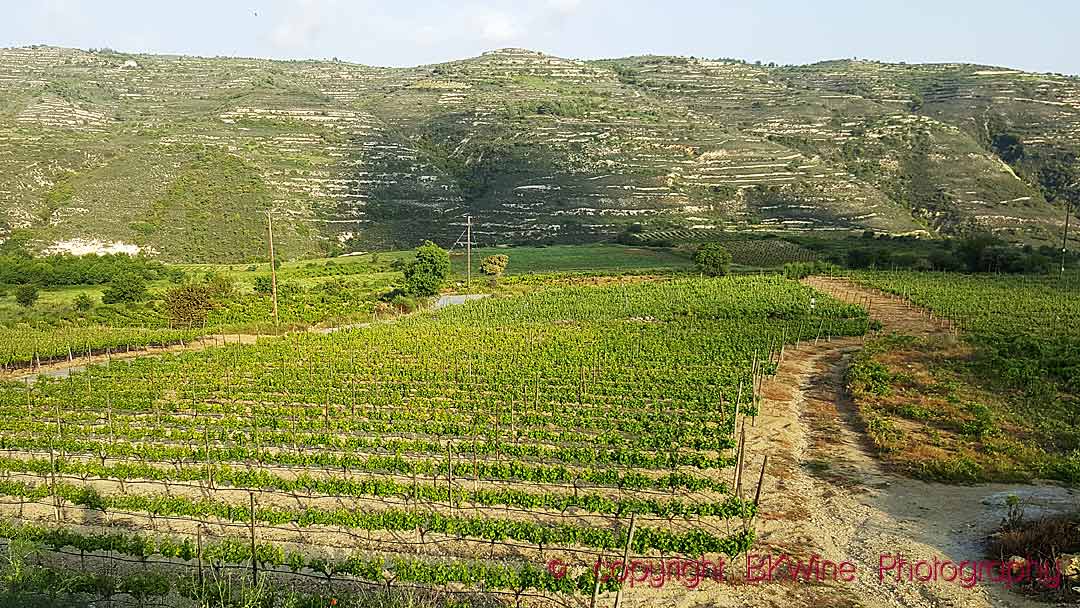

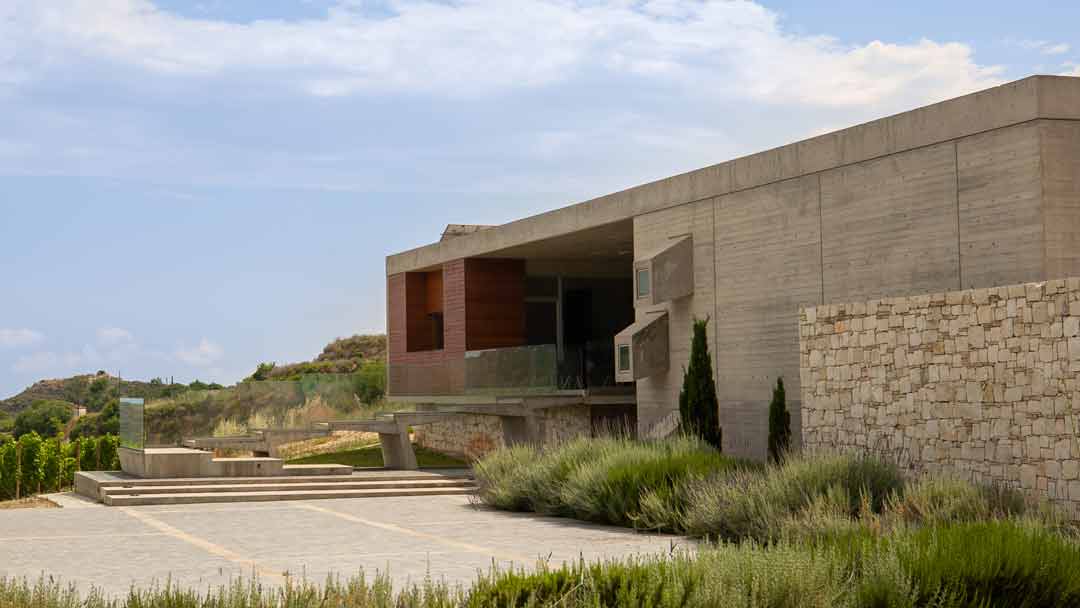
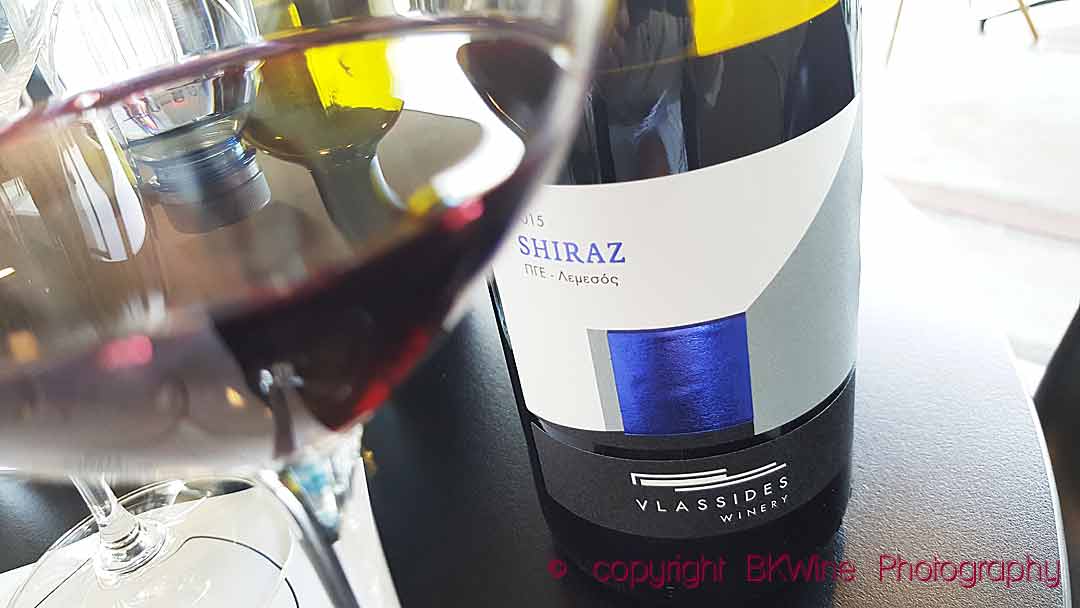

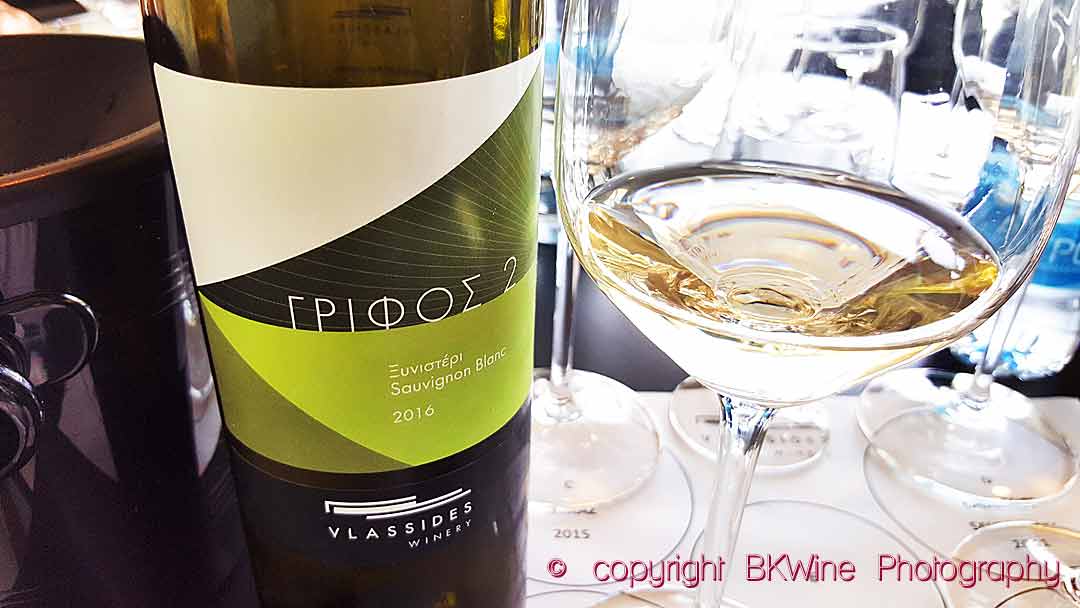

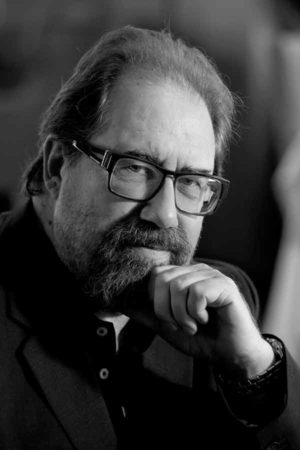
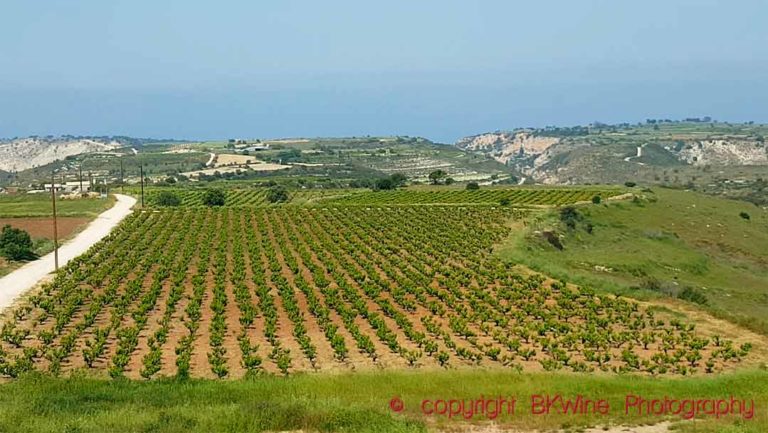
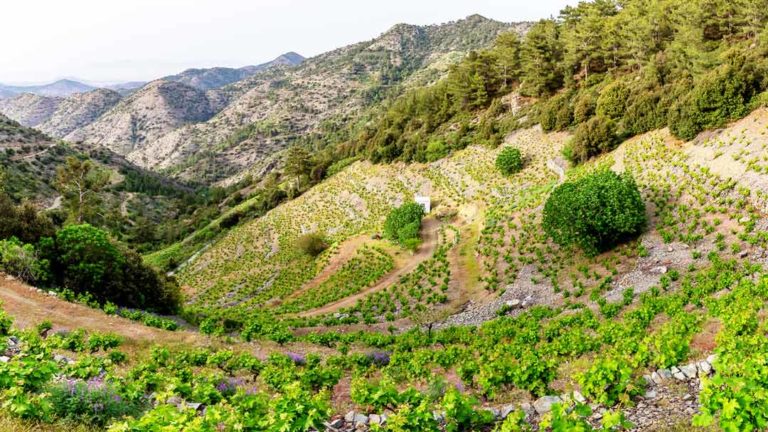






2 Responses
excellent written Mr. Matthew Stowell, Sophocles is something very special and one of the most reserved but very very intelligent people I know and I am proud to have known him since his time in the garage and to be respected by him. In 2022 he even entrusted me with his stand at ProWine for one day. I was really proud of that. I do my best to make his wines available to everyone in Europe. Who ever can make it to Düsseldorf, we’ll be at ProWine 2023 in Hall 12 Stand A37
Thank you, Frieder Zimmerman. I very much appreciate your comment. Yes, Sophocles is unique and his wines are truly exceptional. Good luck in Dusseldorf.